If you have seen our recent facebook updates or twitter posts you may know that we had a friend drive a large rented van to New Orleans (we flew down and back) in order to set up a large book display for our friends at the Christian Legal Society national conference. This diverse gathering serves ordinary lawyers, judges, law professors and law students helping them think faithfully about their callings in the field of law.
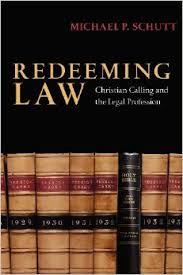 A big seller there is Michael Schutt’s excellent, thoughtful Redeeming Law: Christian Calling and the Legal Profession (IVP; $25.00.) Mike helps emcee the event each year, and he is a dear friend. It’s a must-have book for anyone interested in this field written by a fine and energetic leader who has really thought deeply about his own vocational stewardship. I once joked that it was malpractice for a Christian who is in law-related fields not to own this book, but, you know, I really wasn’t joking.
A big seller there is Michael Schutt’s excellent, thoughtful Redeeming Law: Christian Calling and the Legal Profession (IVP; $25.00.) Mike helps emcee the event each year, and he is a dear friend. It’s a must-have book for anyone interested in this field written by a fine and energetic leader who has really thought deeply about his own vocational stewardship. I once joked that it was malpractice for a Christian who is in law-related fields not to own this book, but, you know, I really wasn’t joking.
Others in the core library for lawyers who follow Christ that are maybe a bit more basic, but still excellent include The Lawyer’s Calling: Christian 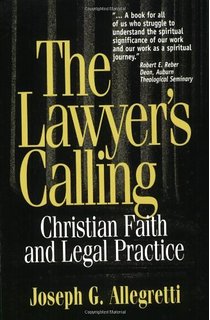 Faith and Legal Practice by Joseph G. Alligretti (Paulist Press; $12.95) and
Faith and Legal Practice by Joseph G. Alligretti (Paulist Press; $12.95) and 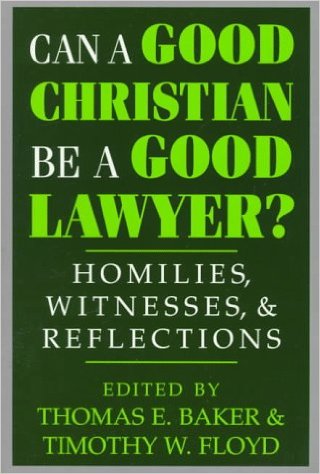 Can a Good Lawyer Be a Good Christian: Homilies, Witnesses & Reflections edited by Thomas Baker & Timothy Floyd (University of Notre Dame Press; $25.00.) I wish other fields — public school teachers, engineers, doctors, for instance — had such thoughtful Christian resources that are interesting, helpful and faithful.
Can a Good Lawyer Be a Good Christian: Homilies, Witnesses & Reflections edited by Thomas Baker & Timothy Floyd (University of Notre Dame Press; $25.00.) I wish other fields — public school teachers, engineers, doctors, for instance — had such thoughtful Christian resources that are interesting, helpful and faithful.
We sell all sorts of books on legal theory — we had almost a hundred, I’d bet, but should at least note these significant ones:
God’s Joust, God’s Justice: Law and Religion in the Western Tradition by John Witte, Jr. (Eerdmans) $36.00
Law and the Bible: Justice, Mercy and Legal Institutions edited by Robert Cochran & David VanDrunen (IVP Academic) $24.00
Christian Perspectives on Legal Thought by Michael McConnell, Robert Cochran and Angela Carmella (Yale University Press) $50.00.
Justice: Rights and Wrongs Nicholas Wolterstorff (Princeton University Press) $32.95
Christianity and Human Rights edited by John Witte & Frank Alexander (Cambridge University Press) $34.99
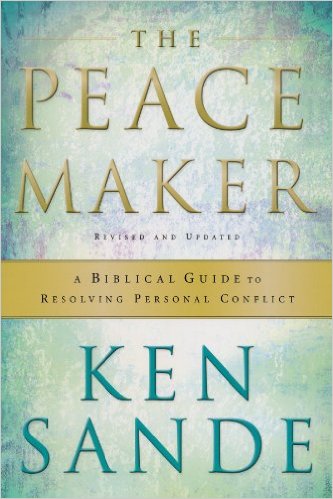 Most CLS participants aren’t law school profs or academics, though, and most are just doing ordinary work, day by day, being salt and light in their field. A number of the attorneys that show up are actually involved in encouraging litigants to settle out of court, and be at least somewhat reconciled. We featured the remarkably practical and very useful book The Peacemaker: A Biblical Guide to Resolving Personal Conflict by Ken Sande (Baker; $16.99) which we highly recommend. CLS even had a special training on this model of conflict resolution, although the book itself is good for anyone, anywhere. I hope somebody in your church has a copy around!
Most CLS participants aren’t law school profs or academics, though, and most are just doing ordinary work, day by day, being salt and light in their field. A number of the attorneys that show up are actually involved in encouraging litigants to settle out of court, and be at least somewhat reconciled. We featured the remarkably practical and very useful book The Peacemaker: A Biblical Guide to Resolving Personal Conflict by Ken Sande (Baker; $16.99) which we highly recommend. CLS even had a special training on this model of conflict resolution, although the book itself is good for anyone, anywhere. I hope somebody in your church has a copy around!
Others do work with immigration law, for instance, and some are fighting sexual trafficking. A few prosecute bad guys stateside and there are 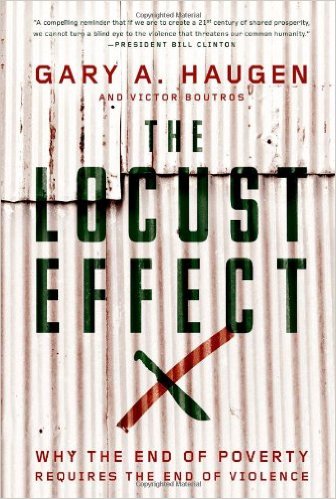 usually a few international folks around, too, some who may work for groups like IJM or Not for Sale. Of course we had a good handful of these sorts of books, and are happy that we sold a few of the must-read Locust Effect: Why the End of Poverty Requires the End of Violence by Gary Haugen and Victor Boutros (Oxford University Press; $18.95.)
usually a few international folks around, too, some who may work for groups like IJM or Not for Sale. Of course we had a good handful of these sorts of books, and are happy that we sold a few of the must-read Locust Effect: Why the End of Poverty Requires the End of Violence by Gary Haugen and Victor Boutros (Oxford University Press; $18.95.)
Still other CLS members work, often in a pro bono capacity, doing legal aid for the underserved and poor. The stories of how Christian Legal Aid clinics are popping up around the country is very, very inspiring. For anyone who has read important books like Robert Lupton’s Toxic Charity: How Churches and Charities Hurt Those They Help, and How to Reverse It or his brand new Charity Detox: What Charity Would Look Like If We Cared About Results or the popular Helping Without Hurting series by Steve Corbett and Brian Fikkert (or heck, Ronald Sider’s still relevant and nearly unrivaled Just Generosity: A New Vision for 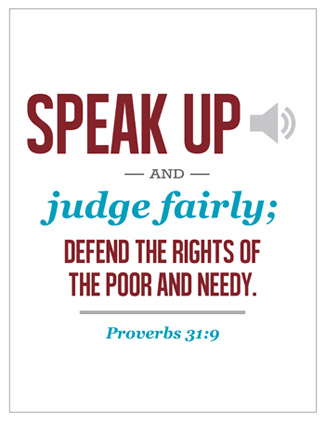 Overcoming Poverty in America) you know that addressing root causes and reforming structural matters are often more effective and just then mere hand-outs and soup kitchens. Hearing about lawyers serving the legal needs of the poor is a great example of the kinds of social support and development that can truly make a lasting difference. Three big cheers for CLS for this being a part of their Godly agenda of setting up free or reduced cost legal aid clinics in places of need. Here is a brief video of a rather ordinary lawyer talking how she gives a few hours a month to a local Christian Legal Aid Clinic.
Overcoming Poverty in America) you know that addressing root causes and reforming structural matters are often more effective and just then mere hand-outs and soup kitchens. Hearing about lawyers serving the legal needs of the poor is a great example of the kinds of social support and development that can truly make a lasting difference. Three big cheers for CLS for this being a part of their Godly agenda of setting up free or reduced cost legal aid clinics in places of need. Here is a brief video of a rather ordinary lawyer talking how she gives a few hours a month to a local Christian Legal Aid Clinic.
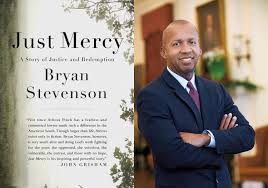 And while most ordinary lawyers don’t do this kind of work up close, there was a keen interested in Bryan Stevenson’s Just Mercy: A Story of Justice & Redemption (Spiegel & Grau; $16.00.) Of course. (I hope you know we’ve promoted this from it’s first day, and have been glad to see it becoming well known. Truly one of the best books of the year!)
And while most ordinary lawyers don’t do this kind of work up close, there was a keen interested in Bryan Stevenson’s Just Mercy: A Story of Justice & Redemption (Spiegel & Grau; $16.00.) Of course. (I hope you know we’ve promoted this from it’s first day, and have been glad to see it becoming well known. Truly one of the best books of the year!)
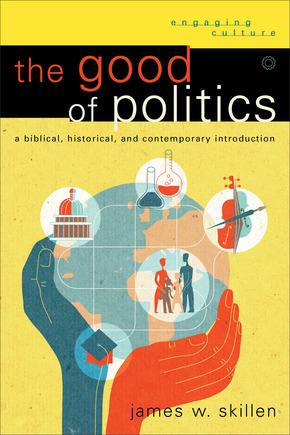 Books more generally about public theology and civic life are important to this crowd. I pushed the great little book by Vince Bacote, The Political Disciple: A Theology of Public Life (Zondervan; $11.99), Miroslav Volf’s passionate A Public Faith: How Followers of Christ Should Serve the Common Good (Brazos Press; $18.99) and made a plea from up front for folks to work through James Skillen’s major work, The Good of Politics: A Biblical, Historical, and Contemporary Introduction (Baker; $24.00.) We sold books on worldview and work, leadership and leisure, culture and the renewal of society, the Christian mind and a bit of philosophy. (Okay, not much philosophy.) Two of last year’s CLS keynote speakers have new books out, so we plugged those and they were a natural fit for this gathering: Russell Moore’s Onward: Engaging the Culture without Losing the Gospel (BH; $24.99) and John Stonestreet’s Restoring All Things: God’s Audacious Plan to Change the World Through Everyday People (Baker; $16.99.) They were perfect sorts of books for many in this crowd.
Books more generally about public theology and civic life are important to this crowd. I pushed the great little book by Vince Bacote, The Political Disciple: A Theology of Public Life (Zondervan; $11.99), Miroslav Volf’s passionate A Public Faith: How Followers of Christ Should Serve the Common Good (Brazos Press; $18.99) and made a plea from up front for folks to work through James Skillen’s major work, The Good of Politics: A Biblical, Historical, and Contemporary Introduction (Baker; $24.00.) We sold books on worldview and work, leadership and leisure, culture and the renewal of society, the Christian mind and a bit of philosophy. (Okay, not much philosophy.) Two of last year’s CLS keynote speakers have new books out, so we plugged those and they were a natural fit for this gathering: Russell Moore’s Onward: Engaging the Culture without Losing the Gospel (BH; $24.99) and John Stonestreet’s Restoring All Things: God’s Audacious Plan to Change the World Through Everyday People (Baker; $16.99.) They were perfect sorts of books for many in this crowd.
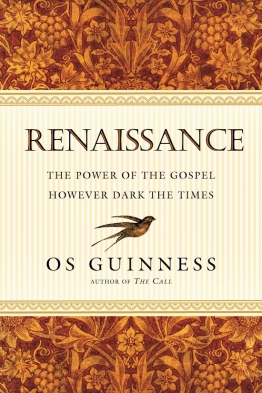 Renaissance: The Power of the Gospel However Dark the Times by Os Guinness (IVP; $16.00) was also one we prominently display; we continue to think this is a helpful antidote to culture wars and social division and religious frustration, and a reminder to trust God and put first things first. I do hope you’d consider reading it and sharing it. It’s a book that should be well known among us.
Renaissance: The Power of the Gospel However Dark the Times by Os Guinness (IVP; $16.00) was also one we prominently display; we continue to think this is a helpful antidote to culture wars and social division and religious frustration, and a reminder to trust God and put first things first. I do hope you’d consider reading it and sharing it. It’s a book that should be well known among us.
Many lawyers are drawn to apologetics. Last year one of our biggest sellers at their conference in Boston, in fact, was by a prominent lawyer and highly regarded U of Penn Law School professor, John Skeel, whose True Paradox: How Christianity Makes Sense of Our Complex World (IVP; $16.00.) had just come out.
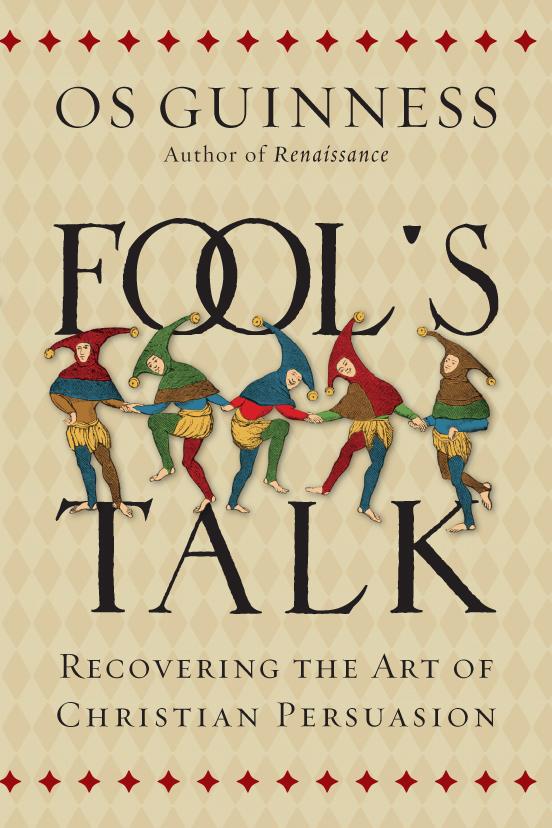 This year in NOLA we sold a bunch of Os Guinness’s very thoughtful, recently released book on Christian persuasion Fools Talk: Recovering the Art of Christian Persuasion (IVP; $22.00.) I trust you saw our BookNotes review describing it and it’s value when it came out.
This year in NOLA we sold a bunch of Os Guinness’s very thoughtful, recently released book on Christian persuasion Fools Talk: Recovering the Art of Christian Persuasion (IVP; $22.00.) I trust you saw our BookNotes review describing it and it’s value when it came out.
I promoted it passionately during a book announcement, and invited these thoughtful leaders to purchase it and read it carefully — in many ways, it is the life work of Guinness, offering insights he learned from his own main intellectual influences (C.S. Lewis, Francis Schaeffer and Peter Berger.)
Of course, many of the CLS tribe know Guinness and his books good on civil society such as A Free People’s Suicide: Sustainable Freedom and the American Future and The Global Public Square: Religious Freedom and the Making of a World Safe for Diversity (both IVP; $16.00 each.)
I hope you know them.
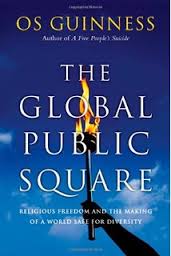
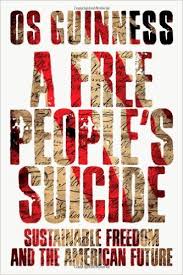
And, naturally, we always tell thoughtful readers about Steve Garber’s Visions of Vocation: Common Grace for the Common Good (IVP; $16.00) which I continue to say is one of my all time favorite books. How to keep on loving God’s world even while we know “how the sausage is made” is an important matter for 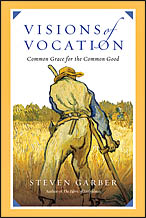 all of us, and certainly for those working in law, since I suppose they quite often have to deal with set-backs, compromises, and great, great human brokenness. If you haven’t picked this up yet, don’t hesitate. It is beautifully done, exceptionally thoughtful, and very, very wise. It is not a simple or quick read, but one to savor and ponder.
all of us, and certainly for those working in law, since I suppose they quite often have to deal with set-backs, compromises, and great, great human brokenness. If you haven’t picked this up yet, don’t hesitate. It is beautifully done, exceptionally thoughtful, and very, very wise. It is not a simple or quick read, but one to savor and ponder.
Despite the emphasis on social renewal and religious liberties and the like, we also featured rows and rows of books on faith formation, spiritual disciplines, missional discipleship, and practical stuff such as resources on work/life balance and family life (not to mention a few great kids books!)
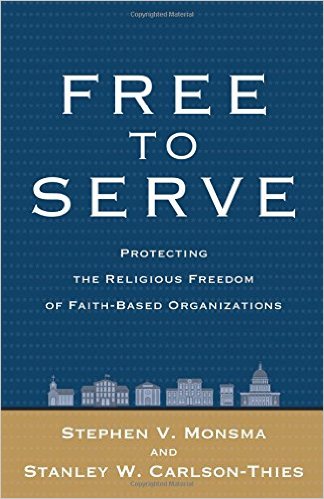 One of the books that we were especially honored to feature was Free to Serve: Protecting the Religious Freedom of Faith-Based Organizations co-authored with former Congressman and legal scholar Stephen V. Monsma by our friend Stanley Carlson-Thies (Brazos Press; $16.99.) We were the first place in the country to have it, launching it there, as it were, as Stanley was there doing workshops and panels on religious freedom and principled pluralism. Not to show off too much, but here are some of Stanley’s impressive credentials:
One of the books that we were especially honored to feature was Free to Serve: Protecting the Religious Freedom of Faith-Based Organizations co-authored with former Congressman and legal scholar Stephen V. Monsma by our friend Stanley Carlson-Thies (Brazos Press; $16.99.) We were the first place in the country to have it, launching it there, as it were, as Stanley was there doing workshops and panels on religious freedom and principled pluralism. Not to show off too much, but here are some of Stanley’s impressive credentials:
He has a PhD from University of Toronto (and had studied at the Institute for Christian Studies) and is now director of the Institutional Religious Freedom Alliance, in partnership with the Center for Public Justice (CPJ), in Washington, DC. He is a senior fellow at CPJ and at the Canadian think tank Cardus. He convenes the Coalition to Preserve Religious Freedom, a multi-faith alliance that advocates for the religious freedom of faith-based organizations to Congress and the federal government. Carlson-Thies served with George W. Bush’s White House Office of Faith-Based and Community Initiatives and served on a task force of President Obama’s Advisory Council on Faith-Based and Neighborhood Partnerships. He has appeared on NPR and in the New York Times, the Wall Street Journal, and Christianity Today.
Free to Serve focuses on the debates about whether and what kind of religious freedoms should be legally honored — think of the lawsuits about Hobby Lobby, the Little Sisters of the Poor, the right of campus ministry organizations like InterVarsity Christian Fellowship to have their leaders sign a statement of faith and still be a valid campus organization, or whether churches, synagogues or mosques can rent public school space in the same way other organizations can, the legal questions about whether Muslim men can grow short beards while in prison or whether Native people’s can religiously use Peyote (CLS says yes, by the way!)
Anyway, we are grateful for the work of the Religious Freedom Alliance and glad for Carlson-Thies justice-for-all, bipartisan vision. We now have this excellent new resource which makes practical the questions about what it means to live justly in a pluralistic society. Not everyone agrees with this approach but I think it really is a great book to explore these questions, with lots of stories and case studies and lots to consider. If anyone can advocate for religious freedom without seeming belligerent or unreasonable, who truly stands for liberty and justice for all, it is these two soft-spoken and very smart authors, Monsma & Carlson-Thies. Why not order it today and learn about their proposals for helping to solve this complicated matter in our contentious social fabric.
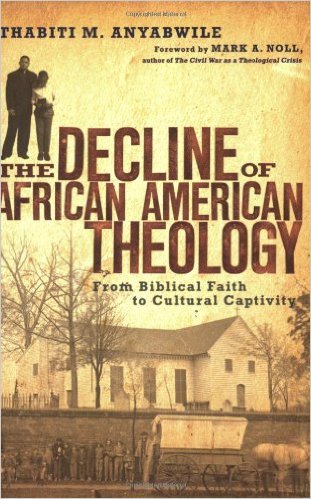
 Of course we sold books by the main keynote speakers there at CLS New Orleans. Our favorite new friend is Thabiti M. Anyabwile, author of many, many books which we stock — on topics as diverse as the revitalization of the historic black church to the little hardback What Is a Healthy Church Member (Crossway; $12.99) to the communal nature of spiritual formation in The Life of God in the Soul of the Church (Christian Focus; $14.99) to a lovely small book called The Gospel for Muslims (Moody Press;
Of course we sold books by the main keynote speakers there at CLS New Orleans. Our favorite new friend is Thabiti M. Anyabwile, author of many, many books which we stock — on topics as diverse as the revitalization of the historic black church to the little hardback What Is a Healthy Church Member (Crossway; $12.99) to the communal nature of spiritual formation in The Life of God in the Soul of the Church (Christian Focus; $14.99) to a lovely small book called The Gospel for Muslims (Moody Press; 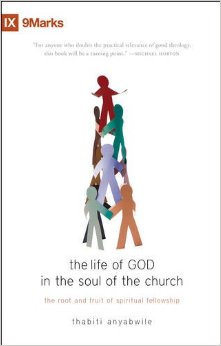 $12.99.) He was a fantastic presenter, a great gospel preacher who walked the gathering through the Good Samaritan passage with fresh power and insight, and then even allowed us to recommend books to him, which he will devour, I’m sure.
$12.99.) He was a fantastic presenter, a great gospel preacher who walked the gathering through the Good Samaritan passage with fresh power and insight, and then even allowed us to recommend books to him, which he will devour, I’m sure.
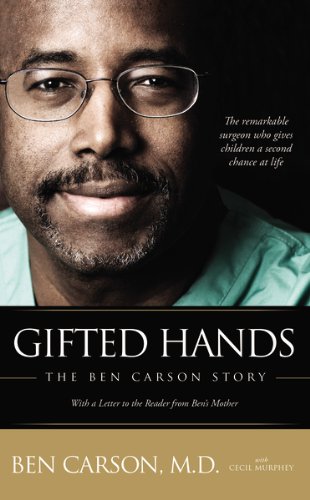 It was fun watching the buzz about the arrival of pediatric neurosurgeon turned Presidential candidate Ben Carson (he had been booked to speak long before his
It was fun watching the buzz about the arrival of pediatric neurosurgeon turned Presidential candidate Ben Carson (he had been booked to speak long before his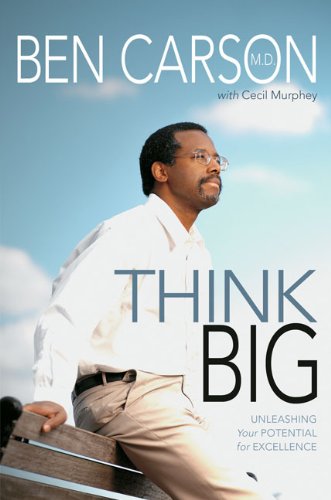 announcement about his candidacy.) We had just gotten his brand spanking new one on the constitution, A More Perfect Union: What We the People Can Do to Reclaim Our Constitutional Liberties (Sentinel; $26.95) although Gifted Hands: The Ben Carson Story — his own story — is still his most inspiring volume and Think Big: Unleashing Your Potential for Excellence is one we often recommend (especially for that chapter on reading!)
announcement about his candidacy.) We had just gotten his brand spanking new one on the constitution, A More Perfect Union: What We the People Can Do to Reclaim Our Constitutional Liberties (Sentinel; $26.95) although Gifted Hands: The Ben Carson Story — his own story — is still his most inspiring volume and Think Big: Unleashing Your Potential for Excellence is one we often recommend (especially for that chapter on reading!)
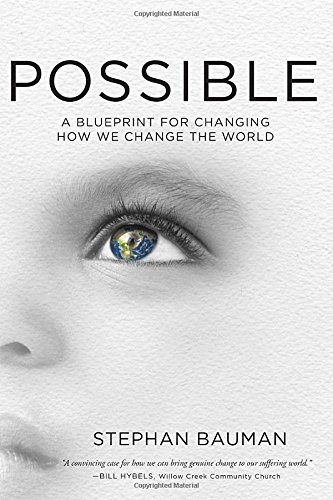
 Speaking of plenary speakers it was really great to be with our friend Stephan Bauman, energetic visionary and CEO of World Relief — you just have to read his Possible: A Blueprint for Changing How We Change the World (Multnomah $22.99.) We’ve mentioned it before, here, and still think it is a very, very moving book — great for anyone wanting to make a difference, to relate spirituality and efforts for justice, and for those that want an experienced guide into working for God’s Kingdom by serving the common good.
Speaking of plenary speakers it was really great to be with our friend Stephan Bauman, energetic visionary and CEO of World Relief — you just have to read his Possible: A Blueprint for Changing How We Change the World (Multnomah $22.99.) We’ve mentioned it before, here, and still think it is a very, very moving book — great for anyone wanting to make a difference, to relate spirituality and efforts for justice, and for those that want an experienced guide into working for God’s Kingdom by serving the common good.
What a blast we had, serving this fabulous, diverse gathering. What interesting books we get to transport to events, what a joy to curate and display a pop-up bookstore for those who want to be life-long learners, eager to relate faith to every aspect of their lives, including their work and careers.
Of course, we have all of these here at the shop, so do send us an order if you need any of these kinds of resources.
***
The Little Way of Ruthie Leming: A Southern Girl, a Small Town, and the Secret of a Good Life Rod Dreher (Grand Central/Hachette) $16.00
How Dante Can Save Your Life: The Life-Changing Wisdom of History’s Greatest Poem Rod Dreher (Regan Arts) $29.95
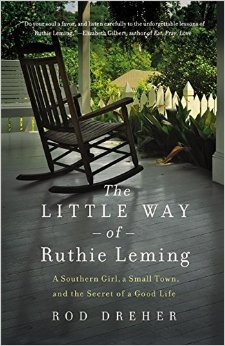
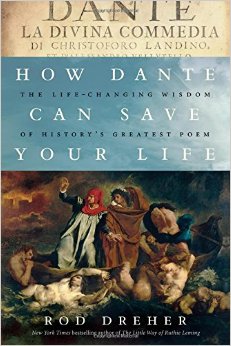 Two books I most want to tell you about, though, are from yet another speaker at CLS, Rod Dreher, who we were very eager to met. To hang out a bit with him and his hilarious wife Julie (who we feel we know from the The Little Way of Ruthie Leming memoir) was a highlight of the trip.
Two books I most want to tell you about, though, are from yet another speaker at CLS, Rod Dreher, who we were very eager to met. To hang out a bit with him and his hilarious wife Julie (who we feel we know from the The Little Way of Ruthie Leming memoir) was a highlight of the trip.
We promoted Dreyer’s The Little Way of Ruthie Leming: A Southern Girl, a Small Town, and the Secret of a Good Life when it came out in hardback a year or so ago, and awarded it one of the best books of the year in our BookNotes end of the year awards. Beth had adored it and voted it onto the Best of 2014 list and although I was quite taken with the premise, just never found time to read it straight through.
But once I started it in earnest, recently, I just couldn’t put it down, racing through it, only to stop to wipe away tears or to ponder the deeper questions it was raising about my own life, family, and vocation and sense of place here in central Pennsylvania. I can honestly say it is one of the best books I’ve read in years!
The plot line of the book is simple: Rod Dreher (who you may know as a witty and thoughtful conservative pundit and Orthodox Christian thinker) found out that his sister, Ruthie Leming, was dying of cancer, and although he and his wife were fast-tracking around the worlds of serious think-tank journalism in the yuppie Eastern seaboard, they were oddly drawn to the colorful cast of down-home country characters in his old hometown in southern Louisiana. They would fly down to visit with Ruthie and so admired her, her husband (a fire-fighter) and her good friends.
I’ve never watched the TV show Swamp People and am only mildly amused by the antics of Duck Dynasty and am not even sure why I bring them up (since Dreher does not, although he does tell about people with nicknames like Big Show and Boo the pharmacist and towns with names like New Roads.) In mentioning a drive in joint kids would visit in his youth that got a “bug zapper the size of a mop bucket” being a big deal, he noted, “It was that kind of town.”) You can imagine the culture shock when Dreher and his wife and kids determine to move back to the Saint Francisville parish and the tiny town of Starhill and reconcile with extended family there.
This was a major move for them, but warranted. As it says on the back cover, “Dreher began to wonder whether the commonplace life Ruthie led was in fact a path to a hidden grandeur, even spiritual greatness.”
The Little Way of Ruthie… is a rumination on place and small town life, on the ways local folk help one another, about real family values — values and folkways that maybe look different when embodied in Starhill then abstractly politicized by the spokespersons of the religious right. It tells a moving tale, artfully hinting at what Elizabeth Gilbert describes in her blurb as “love, surrender, sacrifice, and family.”
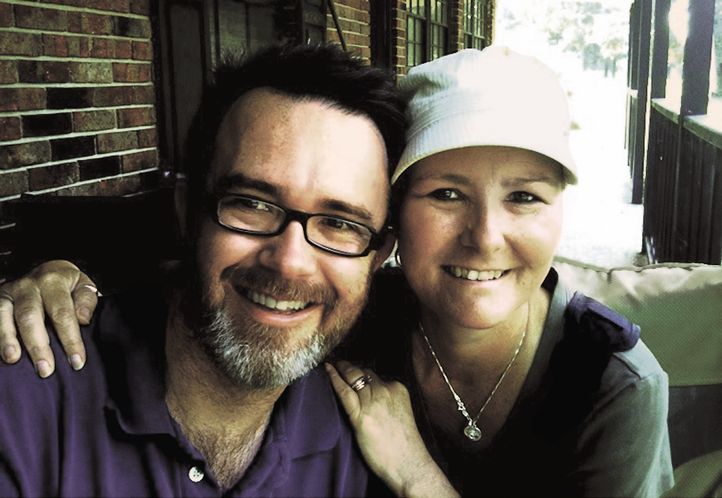 I was struck by a few things in reading The Little Way of Ruthie Leming. First, just how enjoyable a read this was, as good as any great memoir or novel. The subtitle, after all, features a Southern girl and a small town, not to mention “the Secret of a Good Life.” (Okay, it isn’t Sweet Home Alabama with Reese Witherspoon, but the movie rights have been optioned!) We happily commended it often when it first came out, but now I really know how good it is and want to redouble our efforts to spread the word. It isn’t ponderous or difficult, even though there are huge cultural and spiritual questions floating around and behind the narrative. I’ve gone so far as to say that if you’ve enjoyed Wendell Berry’s novels (such as Jayber Crow or Hannah Coulter) you’ll like this.
I was struck by a few things in reading The Little Way of Ruthie Leming. First, just how enjoyable a read this was, as good as any great memoir or novel. The subtitle, after all, features a Southern girl and a small town, not to mention “the Secret of a Good Life.” (Okay, it isn’t Sweet Home Alabama with Reese Witherspoon, but the movie rights have been optioned!) We happily commended it often when it first came out, but now I really know how good it is and want to redouble our efforts to spread the word. It isn’t ponderous or difficult, even though there are huge cultural and spiritual questions floating around and behind the narrative. I’ve gone so far as to say that if you’ve enjoyed Wendell Berry’s novels (such as Jayber Crow or Hannah Coulter) you’ll like this.
 While Little Way of… is no tell-all, sappy soap opera, Dreher’s own foibles (and there are foibles) are admitted and his own spiritual longings are part of the story. His being drawn by beauty to deeper Christian faith, his love of Paris and fine food, and older, historic cultures, are moving parts of the story. His yearnings are palpable and inspiring. It isn’t a major topic of the narrative, but he and his wife become Roman Catholic, and then Orthodox. They seem like the ideal urbane sophisticates and heading back to a town with less than 1,700 folks and not much to do (as we say) was surprising and fascinating; his framing this in light of not only his desire for a more sane and healthy life but as part of his own spiritual formation and faith development is instructive.
While Little Way of… is no tell-all, sappy soap opera, Dreher’s own foibles (and there are foibles) are admitted and his own spiritual longings are part of the story. His being drawn by beauty to deeper Christian faith, his love of Paris and fine food, and older, historic cultures, are moving parts of the story. His yearnings are palpable and inspiring. It isn’t a major topic of the narrative, but he and his wife become Roman Catholic, and then Orthodox. They seem like the ideal urbane sophisticates and heading back to a town with less than 1,700 folks and not much to do (as we say) was surprising and fascinating; his framing this in light of not only his desire for a more sane and healthy life but as part of his own spiritual formation and faith development is instructive.
 Ann Voskamp says “This book will make you feel hunger pangs for what you didn’t know you even missed. And then it will feed you, line upon line, like soul bread.” Indeed, it comes to us as a low-key, even sentimental story, but there is rich theological truth here.
Ann Voskamp says “This book will make you feel hunger pangs for what you didn’t know you even missed. And then it will feed you, line upon line, like soul bread.” Indeed, it comes to us as a low-key, even sentimental story, but there is rich theological truth here.
Here is another thing I liked: it is not published by a religious publishing house. Many evangelical publishers would blanch at the talk about drinking wine and margaritas and skinny dipping and ghosts and sex and Catholic shrines and bayou river parties and barefoot pall bearers. The writing is frank (although never gratuitous) about all manner of Southern things. It is a profoundly religious book, even though it isn’t pitched as a religious testimony.
Of course, when one leaves such a close knit family, and returns amidst tragedy and grief, thinks are not rosy; how could they be? Much of The Little Way... is a tribute to the remarkably joyful Ruthie and her friends and co-workers at her school who rallied with and for her in her final year but much is also about the subtle pains and dysfunctions of this larger-than-life southern family. Can you go home again? That is the question.
In one scene many of us could imagine, he bumps into an old girlfriend where there was some old tensions and hurts.
This is what it means to move home,” her writes. “Communitarian romanticism is fine, but what do you do when the past isn’t even past, but is in fact jogging down your street, and stepping onto your front porch to say hello?”
We loved Mrs. Ruthie Leming and her daughters and we loved Rod and Julie Dreher and the extended family we got to know through reading this fine book, including Mam and Paw. It did not end with completely resolved happiness, which is as it should be, I suppose. You will close the book glad for having met these folks, feeling perhaps bittersweet about the whole situation, and most likely wishing for more.
And — who knew? — you will get more. A lot more.
 Mr. Dreher’s recent book How Dante Can Save Your Life: The Life-Changing Wisdom of History’s Greatest Poem is not just a thoughtful contemporary Christian telling us about Dante’s 700-year old Commedia, it’s a memoir. In fact, he says in the preface that if you want an intellectual survey of this seminal work in the Western canon, you should look elsewhere.
Mr. Dreher’s recent book How Dante Can Save Your Life: The Life-Changing Wisdom of History’s Greatest Poem is not just a thoughtful contemporary Christian telling us about Dante’s 700-year old Commedia, it’s a memoir. In fact, he says in the preface that if you want an intellectual survey of this seminal work in the Western canon, you should look elsewhere.
Dreher quickly says, How Dante Can Save Your Life “is not a literary analysis, it is a person view. It’s a self help book for people who may not read self-help books, but who are curious and delight in journeys of self-discovery along roads not often taken. Nothing would make me happier than for you to finish this book and take up the Commedia — but it’s not strictly necessary.”
You see, Dreher himself (as we know from The Little Way of Ruthie Leming) is a seeker and he has burned some bridges and found himself in his own dark wood. He starts off this book noting that he had grown anxious and stressed, even being afflicted with a related autoimmune disorder from his depression.
“This is a book about exile” he tells us. “What does it mean to know you can never go home? This was Dante’s dilemma — and in a different sense, it is mine.”
Rod encourages us all, whatever perplexities we may face, whatever you may face: “Dante showed me the way through. He can do the same for you.”
Though the Commedia was written by a faithful Catholic, its message is universal. You don’t have to be a Catholic, or any sort of believer, to love it and to be changed by it. And though mine is a book that’s ultimately about learning to live with God, it is not a book of religious apologetics; it is a book about finding our own true path. Like the Commedia it celebrates, this book is for believers who struggle to hold on to their faith when religious institutions have lost credibility. It’s a book for people who have lost faith in love, in other people, in the family, in politics, in their careers, and in the possibility of worldly success. Dante has been there too. He gets it.
I am not a purist about what I read, and How Dante Can Save Your Life: The Life-Changing Wisdom of History’s Greatest Poem is, in a way, a perfect book for me. (Again, one does not have to read Dante first.) Maybe it will be useful and fun and inspiring for you, too. It is not a scholarly treatise, but, as a memoir of Dreher’s own inner struggles, we learn a lot about the three volumes of The Divine Comedy. Isn’t that cool in many ways — you don’t have to read the imposing epic poem first. It’s a great doorway into classic literature, accessible, moving, relevant, but not dry or abstract.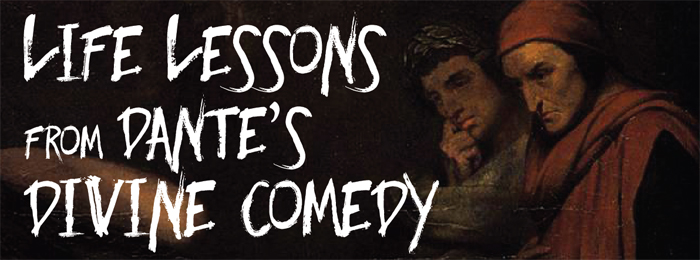
Again, in the introduction, Dreher reminds us
For the poem to work its magic on the reader, it has to be taken up into the moral imagination in a personal way. You have to engage in dialogue with our Florentine guide along the pilgrim path. When I gave myself over to him, I found that Dante is not a remote figure from an alien world but a warm companion with whom I had far more in common than I could have imagined. He is simply a fellow wayfarer who has seen great things, both terrifying and glorious, along life’s way, and wants to tell you all about it.
Dreher, too, has some some terrifying and glorious things. I mean that. And he, too, wants to tell you about them. He knows, as he puts it, that “there is no easy way out.”
Virgil said to the pilgrim Dante, “Let us go. The long road urges us.” What a great way to start this literary memoir of self discovering and spiritual salvation.
I will just say this much more. You don’t have to read The Little Way of Ruthie Leming to appreciate this story of Dreher’s Louisiana encounter with Dante. But it might help. And, if you have read Ruthie Leming but thought that Dreher’s Dante book is not for you, think again. In some ways it really is a sequel to Ruthie Leming.
How Dante Can Save Your Life starts, in fact with this good line: “Florence has the Arno; Starhill has the Mississippi.”
Oh yeah, I thought, this is going to be good.
He continues,
Aside from that, the fields and orchards of the rural Louisiana settlement where my family has lived for five generations is about as far from the Tuscan capital as any place in the Western world.
This is the story of that place, and of two men who grew up there and whose lives have been defined by its traditions: my father and me.
So, yes, Rod’s daddy, Ray (also known as Paw in Ruthie Leming) is a key character along with Rod and his family in How Dante Can Save Your Life. Bet you didn’t see that coming?
I sure didn’t. I thought Dreher was back to his classical punditry, his conservative Catholic cultural studies, and giving us a (snooty?) guide to serious Western lit that we all should know. Nope. This really is another memoir, the ongoing family saga, the struggles he and Julie and his kids had once they moved back to Starhill.
There is heavy pain here, a few miracles, some church history (St. Francis of Assisi died just forty years before Dante, and surely influenced him), serious reflections upon ugly church scandals and personal struggles faced and chronicled. One chapter wonders what sons do and do not owe their father figures. There is some fine advise about finding a mentor. There’s a sidebar box called “How To Live with Mystery and Grace” and a chapter about “ties that bind beyond the grave.” (How could he not reflect on the nature of Purgatory?)
How Dante Can Save Your Life: The Life-changing Wisdom… explains that “When Beatrice died, Dante lost her iconic image and became enthralled by false ones.” Yep, there’s a chapter on lust, thoughtfully frame as disordered loves, and then some brief guidance on “how to gentle your heart.”
You see, this really is a self-help book for those who aren’t attracted to such books.
And, it is a literature guide for those who aren’t attracted to such books or who don’t study older classics.
And is it truly is a colorful memoir you are sure to enjoy, even if you tend not to read creative nonfiction.
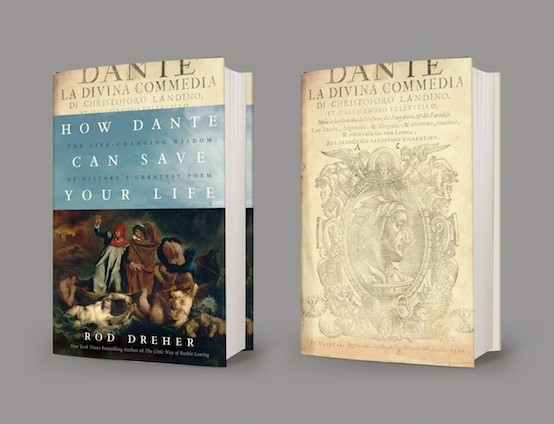 And, for what it is worth, it is expertly designed, beautifully done, from the handsome, 3/4 sized dust jacket to the full color frontispieces. It’s truly a great book.
And, for what it is worth, it is expertly designed, beautifully done, from the handsome, 3/4 sized dust jacket to the full color frontispieces. It’s truly a great book.
Here is what Eric Metaxas writes of it:
Sometimes a book comes along that you want to press into the hands of everyone you know. A brilliant, searingly honest account of one man’s path to real healing, and an invitation to the rest of us to join him.
Order either of these mentioned above from us today at our BookNotes discounted prices — we think you will be glad have them, maybe even discuss them with a book club or small group. It was a joy for us to meet these many authors, and hope you are glad supporting our efforts offering good books to enhance our lives, our culture, our world.
Our website order form below is secure, or, as we say, we can just send you a bill to pay later.
BookNotes
DISCOUNT
ANY ITEM MENTIONED
20% off
order here
takes you to the secure Hearts & Minds order form page
just tell us what you want
inquire here
if you have questions or need more information
just ask us what you want to know
Hearts & Minds 234 East Main Street Dallastown, PA 17313 717-246-333
